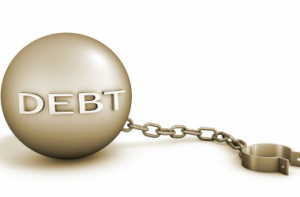 Today’s top story: How early withdrawals can take a chunk out of your retirement savings. Also in the news: The smart way to go into debt, retirement mistakes you need to avoid, and three ways consumers become victims of identity theft.
Today’s top story: How early withdrawals can take a chunk out of your retirement savings. Also in the news: The smart way to go into debt, retirement mistakes you need to avoid, and three ways consumers become victims of identity theft.
How Early Withdrawals Can Tax Your Retirement Savings
Taxes and penalties abound.
The Smart Ways to Go Into Debt
Yes, you read that correctly.
The 7 Retirement Mistakes That Finance Experts Tell Their Clients to Avoid
You don’t want to make these.
3 Ways Consumers Fall Victim to Identity Theft
You’ll want to avoid these, too.
Laziness Can Cost You: 5 Ways Renters Set Themselves Up for Failure
Due diligence and research is an absolute must.



